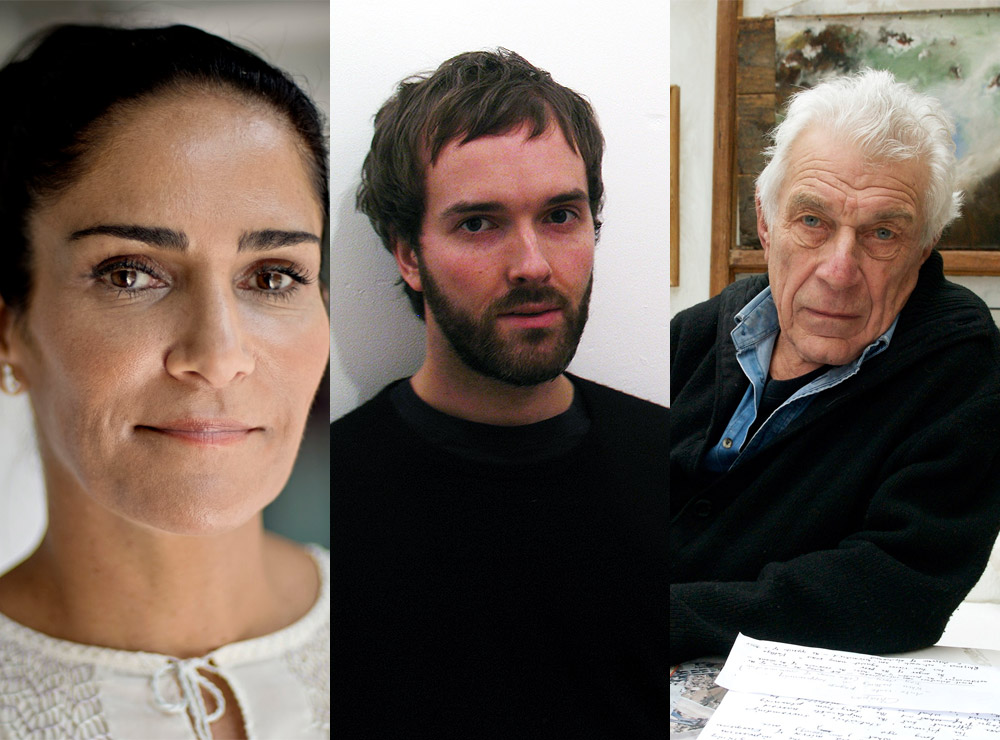
In chapter three of our Story Machine series, WCN Programme Manager and creator of the Story Machine Sam Ruddock describes how his thinking for this year’s event cuts across other exciting aspects of the City of Literature programme.
The Story Machine: Under Surveillance is a continuation of themes running throughout our Norfolk & Norwich Festival programme. It is inspired by other events, especially across the City of Literature weekend. I’m looking forward to the ways that the conversations and connections will tessellate with and challenge each other. There are three events where the connections are particularly pertinent: the annual Harriet Martineau celebration Speaking Truth to Power, our graphic novel feast Satire and Protest, and a long look at John Berger’s life and work in Ways of Seeing.
Speaking Truth To Power
Harriet Martineau is a writer who never ceases to amaze and intrigue me. She was a progressive thinker and bestselling writer who spent her life championing economic fairness, racial equality, women’s rights, the abolition of slavery, and the struggle for a more just society. Charles Darwin’s brother, Erasmus, was in love with her, her novel Deerbrook was an important bridge between Jane Austen and George Eliot and inspired Virginia Wolf, and later in life she instigated a formidable partnership with Florence Nightingale to campaign for better hospitals. Internationally her persistent pro-Lincoln journalistic coverage of the American Civil War made her a celebrated campaigner.
Were Harriet alive today I have little doubt that she’d turn her attention to free-speech, surveillance, and the sorts of campaigns that Lydia Cacho and Anabel Hernández have sought to address: power without accountability, inequality and exploitation. Slavery Inc, Lydia Cacho’s investigation of international sex trafficking is one of the most tenacious and astute books I’ve read. I can’t wait to meet Lydia and ask her what lights/exposures/ways of seeing are most effective in uncovering and challenging power. And how we avoid becoming secretive and manipulative ourselves in response.
Both Lydia and Anabel have faced significant opposition to their work, and conducted their investigations at great personal risk. Each will present new thoughts about global journalism in the post-truth age – new visions for what we can all do to demand accountability and integrity in our world.
Satire and Protest
I think my favourite books this year have all been graphic novels, and the three we feature here have been glorious reading experiences. The opening pages of Stephen Collins‘ beguiling book The Gigantic Beard That Was Evil, begins:
‘Beneath the skin of everything is something nobody can know’
It might almost have been written as an epigraph for The Story Machine. It’s funny and moving and thought-provoking. And it has a giant beard that takes over the world and challenges authority and helps people open up to each other! The satire is pointed yet witty and unexpected and the artwork sparse pencil-drawings full of texture.
Isabel Greenberg’s The One Hundred Nights of Hero is a celebration of stories and their power to transform the world. It’s a reworking of the Shaharazad thousand and one nights, of stories told nightly that change the minds of those with power. At its heart is a League of Secret Storytellers, which I think is the protest group I’d most love to be part of. Reading every page is a gulp of freedom and delight, of fellowship in the struggle against oppression and the homogenising of stories. Isabel can’t herself join us for the event, but we’re recording some unique new content with her as part of the event.
Hannah Berry’s brand new Livestock is a searing and hilarious indictment of celebrity culture and pithy media-driven soundbite agendas. She’s also one of the most delightful people I’ve ever spent time with.
Ways of Seeing
The 40th anniversary of John Berger’s seminal book and TV series Ways of Seeing got me thinking about the art of observation and how we direct our attention appropriately. That eventually became the theme and core of The Story Machine. I can’t wait to hear Gareth Evans, John Christie, and Mike Dibb celebrate John Berger’s life and work as part of the City of Literature Weekend. Tickets are almost sold out, so you need to get booking if you want to be there.
In many ways, The Story Machine is my answer to John Berger’s work: less about ways of seeing, more as ways of being seen: how do we live healthily in times of mass surveillance, how do we allow ourselves to be seen and understood so that we build empathy and understanding, alliances rather than differences?
You may also like...
Read three of the best poetry collections based in the East of England
Our weekly spotlight on an East Anglian Book Awards 2023 shortlist

19th December 2023
NCW staff’s top ten favourite reads for winter
We’ve shared our recommended books for the winter season, with everything from haunted gothic novels to heartwarming Japanese fiction.

14th December 2023
Read three exciting historical books from East Anglia

8th December 2023






